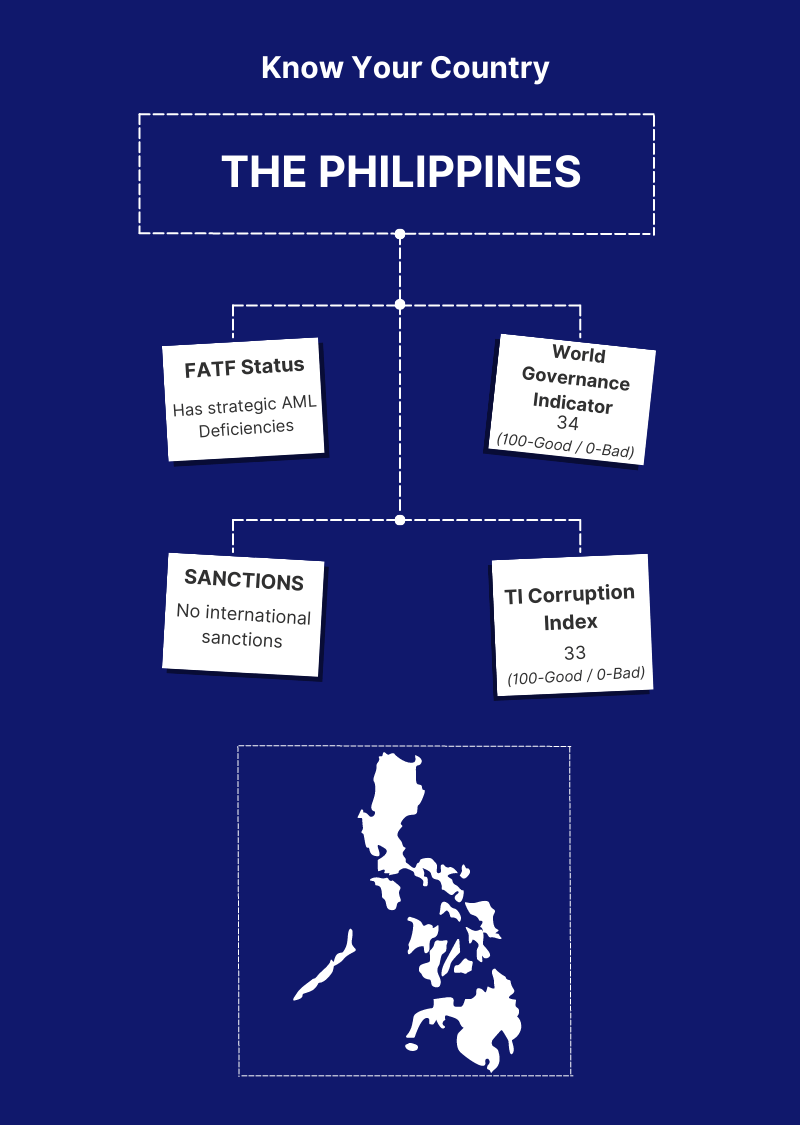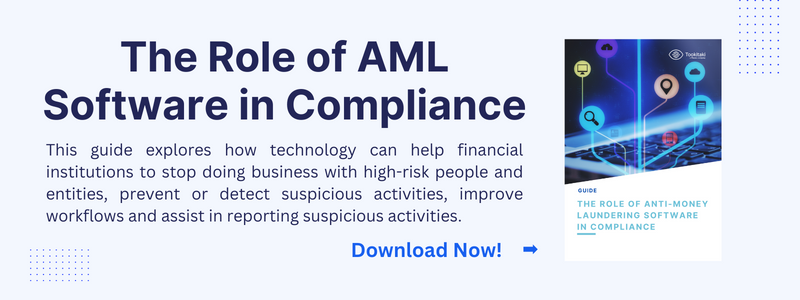AML (Anti-Money Laundering) detection plays a crucial role in combating financial crimes and ensuring the integrity of the financial system in the Philippines. As the financial landscape evolves and criminals become more sophisticated, there is a growing need for innovative technology that can enhance AML detection processes.
In this blog, we will explore how Tookitaki's innovative technology is revolutionizing AML detection in the Philippines. We will delve into the unique features and benefits of Tookitaki's solution, and highlight its potential to strengthen AML compliance for financial institutions. Let's dive in and discover how Tookitaki's technology transforms the fight against financial crimes in the Philippines.
The Current State of AML Detection in the Philippines
AML detection in the Philippines faces various challenges and limitations that hinder its effectiveness in combating financial crimes. Understanding the current state of AML detection is crucial for identifying areas that require improvement. Here, we will explore the existing challenges and limitations and provide an overview of the regulatory framework and requirements in the Philippines.
Challenges in AML Detection
- Fragmented Data: Financial institutions struggle with integrating data from multiple sources, leading to incomplete and fragmented information for AML detection.
- Manual Processes: Many AML detection processes still rely on manual efforts, which are time-consuming, prone to errors, and may miss important red flags.
- Evolving Money Laundering Techniques: Criminals constantly adapt their techniques, making it challenging for traditional AML detection systems to keep up with emerging risks.
Regulatory Framework in the Philippines
- Anti-Money Laundering Act: The Anti-Money Laundering Act (AMLA) of 2001 serves as the primary legislation for AML efforts in the Philippines, outlining the legal framework and requirements.
- Bangko Sentral ng Pilipinas (BSP): The BSP is the regulatory authority responsible for supervising and ensuring compliance with AML regulations by financial institutions in the Philippines.
- Reporting Requirements: Financial institutions must implement robust AML programs, conduct customer due diligence, and report suspicious transactions to the BSP's Anti-Money Laundering Council (AMLC).

Introducing Tookitaki's Innovative Technology
The AML Suite is an end-to-end operating system that modernises compliance processes for banks and fintechs. In parallel, the AFC Ecosystem serves as a community of experts dedicated to uncovering hidden money trails that traditional methods cannot detect. Powered by federated machine learning, the AML Suite collaborates with the AFC Ecosystem to ensure that financial institutions stay ahead of the curve in their AML programs.
The AMLS includes several modules such as Transaction Monitoring, Smart Screening, Dynamic Risk Scoring, and Case Manager. These modules work together to provide a comprehensive compliance solution that covers all aspects of AML, including detection, investigation, and reporting.
Tookitaki's AML Suite is a comprehensive solution designed to help financial institutions in Singapore effectively manage their AML compliance requirements. By leveraging advanced technologies, Tookitaki's AML Suite provides cutting-edge tools for transaction monitoring, screening, and customer due diligence.
Tookitaki's innovative technology empowers financial institutions in the Philippines to enhance their AML detection capabilities. Leveraging advanced algorithms and automation enables more accurate risk identification, streamlined investigations, and improved compliance with AML regulations. In the next section, we will delve into the tangible benefits that financial institutions can experience by adopting Tookitaki's innovative technology.
Read More: How Advanced Detection is Changing Philippines' AML Landscape
Benefits of Tookitaki's Technology for AML Detection in the Philippines
Tookitaki's innovative technology brings a multitude of benefits to AML detection in the Philippines. Tookitaki empowers financial institutions with enhanced capabilities to combat money laundering and ensure compliance with AML regulations by harnessing the power of advanced algorithms and automation. Let's explore the specific benefits that Tookitaki's technology offers:
Improved Detection Accuracy and Efficiency
Tookitaki's technology leverages a first-of-a-kind community-based approach to identify suspicious patterns rapidly. This results in more accurate detection of potential money laundering activities, reducing false positives and minimizing the risk of missing actual threats.
By automating manual processes and optimizing workflows, Tookitaki enhances the efficiency of AML detection, enabling financial institutions to process a larger volume of transactions and alerts without compromising quality.
Enhanced Risk Management and Compliance
With Tookitaki's technology, financial institutions can better manage their AML risks by gaining deeper insights into customer behaviour and transaction patterns. This enables proactive identification and mitigation of potential risks, safeguarding institutions from reputational and regulatory consequences.
Tookitaki's solution ensures compliance with AML regulations by automating compliance checks, reducing the chances of human errors, and providing a comprehensive audit trail for regulatory reporting.
Streamlined Investigations and Case Management
Tookitaki's technology streamlines investigations through automated case management and intelligent alert prioritization. By focusing on high-risk alerts and providing investigators with relevant insights, it enables efficient and effective investigations, reducing the time and effort required for each case.
The solution offers a user-friendly interface and workflow optimization tools, enabling financial institutions to customize investigation workflows, ensure consistency, and improve collaboration among investigation teams.
The Future of AML Detection with Tookitaki
As the landscape of financial crime evolves, the future of AML detection requires continuous innovation and adaptation. Tookitaki is at the forefront of driving advancements in AML detection technology, empowering financial institutions to stay ahead of emerging risks and regulatory requirements. Let's delve into the future of AML detection with Tookitaki:
Harnessing the Power of Artificial Intelligence and Machine Learning
Tookitaki's commitment to leveraging artificial intelligence (AI) and machine learning (ML) technologies ensures that financial institutions have access to cutting-edge tools for AML detection. Tookitaki enables more accurate and sophisticated detection of money laundering activities by continually refining and enhancing its algorithms.
Through AI and ML, Tookitaki's technology can learn from historical data and adapt to new patterns, enabling proactive detection of evolving money laundering techniques. This empowers financial institutions to stay one step ahead of criminals and regulatory changes.
Embracing Advanced Analytics
With the increasing volume, velocity, and variety of data, the future of AML detection lies in the effective utilization of big data and advanced analytics. Tookitaki's technology excels in processing and analyzing vast amounts of data from multiple sources, enabling comprehensive risk assessment and detection.
By leveraging advanced analytics, Tookitaki provides financial institutions with actionable insights and predictive capabilities. This enables them to anticipate potential risks, identify emerging trends, and optimize their AML detection strategies.
Collaboration and Integration with Industry Stakeholders
The future of AML detection necessitates close collaboration and information sharing among financial institutions, regulatory bodies, and industry stakeholders. Tookitaki recognizes the importance of collaboration and actively engages with partners and experts to foster knowledge exchange and collective defence against financial crime.
Tookitaki's technology is designed to facilitate seamless integration with existing systems and data sources, enabling financial institutions to leverage their ecosystem and achieve a holistic view of AML risks.
Focus on User Experience and Scalability
Tookitaki's commitment to user-centric design ensures that financial institutions can easily adopt and scale their AML detection capabilities. User-friendly interfaces, intuitive workflows, and customizable features enable smooth integration into existing processes and enhance the productivity of AML teams.
Tookitaki's technology is built to scale with the growing needs of financial institutions, accommodating increased transaction volumes and evolving regulatory requirements. This scalability ensures long-term effectiveness and adaptability in combating money laundering threats.
Tookitaki remains dedicated to pushing the boundaries of AML detection technology, continuously innovating and evolving its solutions to meet the dynamic challenges of the future. By embracing Tookitaki's forward-thinking approach and cutting-edge technology, financial institutions in the Philippines can navigate the evolving landscape of financial crime and ensure robust AML detection and compliance in the years to come.
Conclusion
In this blog, we have explored the current state of AML detection in the Philippines and the challenges faced by financial institutions. We have also delved into the innovative technology offered by Tookitaki, which has revolutionized AML detection and compliance. Let's recap the key points:
- AML detection in the Philippines is crucial for combating financial crime and ensuring regulatory compliance.
- Traditional approaches to AML detection often fall short in addressing the evolving nature of money laundering activities.
- Tookitaki's innovative technology brings a new level of accuracy, efficiency, and sophistication to AML detection.
- With advanced features such as AI and ML, big data analytics, and seamless integration, Tookitaki empowers financial institutions to stay ahead of emerging risks.
- The future of AML detection lies in embracing technology, collaboration, and scalability, all of which Tookitaki's solution provides.
Tookitaki's innovative technology is a game-changer for AML detection in the Philippines. By adopting Tookitaki's solution, financial institutions can enhance their AML compliance efforts, improve detection accuracy, and effectively mitigate financial crime risks.
We encourage financial institutions in the Philippines to explore Tookitaki's technology and discover how it can revolutionize their AML detection capabilities. Stay ahead of the evolving financial crime landscape and ensure robust compliance by harnessing the power of Tookitaki's innovative AML detection solution.
Take the next step towards enhancing your AML detection efforts and book a demo of Tookitaki's technology today.
Talk to an Expert





